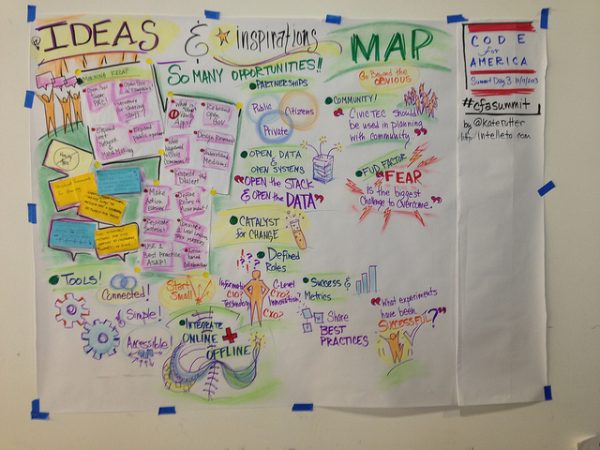Open-data group picks Charlotte for 2014 project

A national nonprofit that works to embed tech-savvy entrepreneurs into city governments, to help them work better, has chosen Charlotte as one of 10 partner cities for 2014.
The Code for America fellows will work to create applications that connect residents to city services, create open data platforms or solve a problem with community collaboration.
It is too early to know what the 2014 Charlotte fellows will create once they arrive in Charlotte. They’ll arrive in Charlotte in February and start to explore how they can help. In March, they’ll go to Code for America’s home base in San Francisco and begin developing their apps, which will debut in September and October.
City leaders were enthusiastic about being chosen. Civic and business leaders have been trying to position Charlotte as a welcoming place for young, creative entrepreneurs – like those who become Code for America fellows.
In a news release, Mayor Patsy Kinsey said, “The City looks forward to using the partnership to strengthen our citizen engagement efforts and further Charlotte’s reputation as an emerging IT leader.”
In recent years, local governments in Charlotte have created their own technology projects, such as MyCharlotte, a mobile application that connects users with 311-call center, and the Water Watchers app, which lets people report water pollution.
Local tech enthusiasts have also taken notice of the Code for America recognition. Code for Charlotte has sprouted, as a local Code for America Brigade. More than 40 residents have joined a meet-up group of self-described “developers, designers, data geeks, leaders, and idea-makers who volunteer to help Charlotte, NC government and civic orgs adopt open web technologies. Inspired by, and eager to contribute to, Code for America.”
Until next year, Charlotte can look at past Code for America projects for a taste of what might be to come.
Boston’s team created an Adopt-A-Hydrant program. With Adopt-A-Hydrant, residents can adopt a fire hydrant to dig out after a snowfall. It lets the city find community partners to take care of what would otherwise be a complex and tedious municipal task.
A more recent Code for America creation is an online game, Click-That-Hood, designed by the 2013 Louisville fellowship team. In Click-That-Hood, players have the chance to learn their area’s neighborhoods through a familiar memory matching game.
While the game may seem merely a novelty, Code for America fellows have also built analytics applications such as Civic Insight, where residents can see information about underutilized properties in their community. Originally developed for New Orleans, the application will be available for other communities to use. The Atlantic magazine called Civic Insight “[one of the] best open data releases of 2012.”
What made Charlotte’s application to the group successful? Luke Norris, Code for America’s director of government relations, described in an email what made Charlotte stand out. “The City of Charlotte in particular has a strong cross-functional support for the partnership, including the mayor’s office, CIO’s office, IT manager, and various internal business teams,” he wrote. “This coupled with an engaged group of citizen and community leaders made for a strong application and will make for a strong partnership.”
The city’s funding partner is the John S. and James L. Knight Foundation.
Corey Conner wrote is article while interning at the UNC Charlotte Urban Institute in 2014 as a student at UNC Charlotte.
Corey Conner